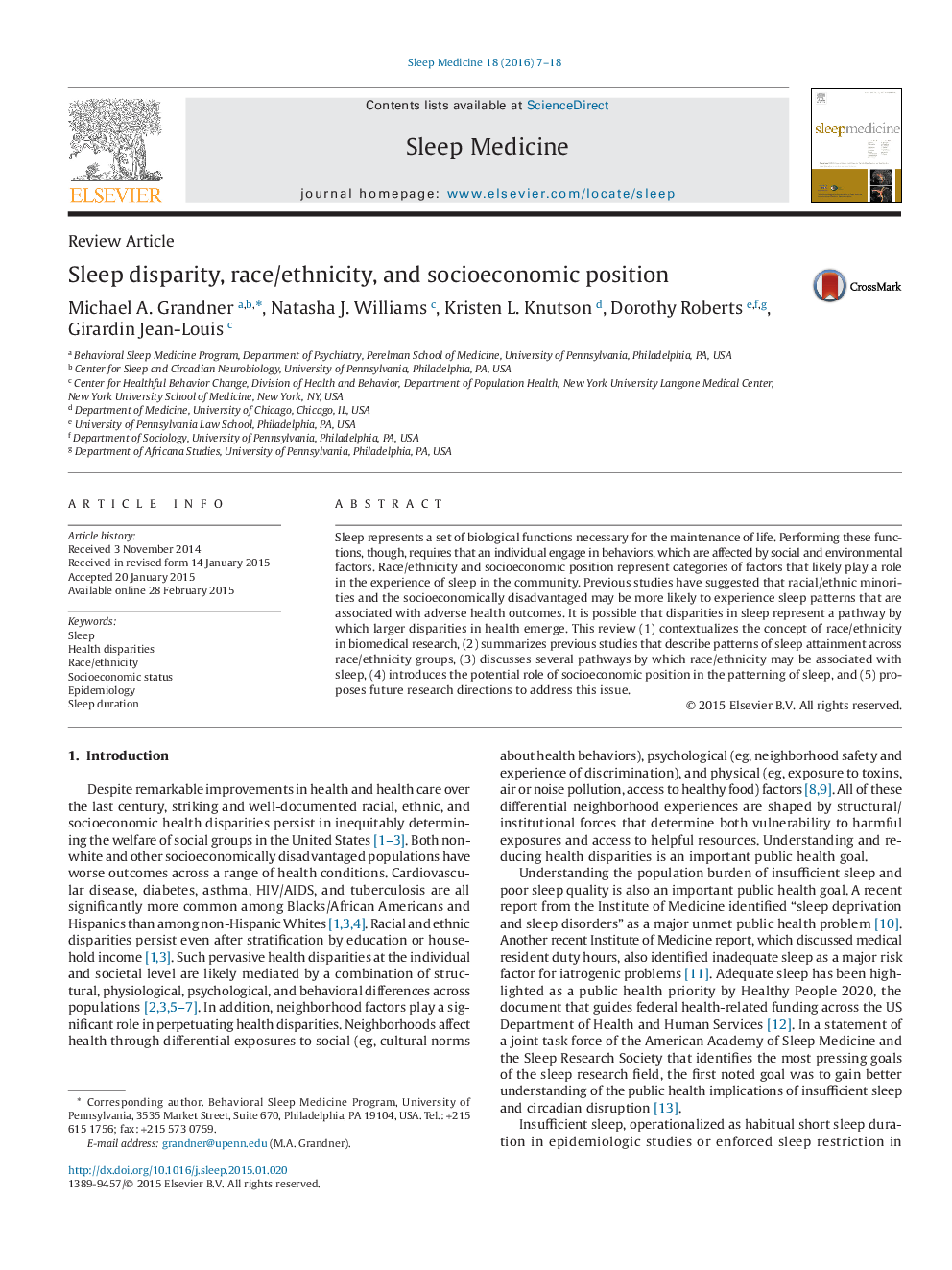| کد مقاله | کد نشریه | سال انتشار | مقاله انگلیسی | نسخه تمام متن |
|---|---|---|---|---|
| 3175834 | 1586490 | 2016 | 12 صفحه PDF | دانلود رایگان |
• Racial/ethnic minorities are often more likely to experience less/worse sleep.
• The relationship between sleep and race is complex and likely depends on the context.
• Sleep may be a modifiable factor in racial/ethnic health disparities.
Sleep represents a set of biological functions necessary for the maintenance of life. Performing these functions, though, requires that an individual engage in behaviors, which are affected by social and environmental factors. Race/ethnicity and socioeconomic position represent categories of factors that likely play a role in the experience of sleep in the community. Previous studies have suggested that racial/ethnic minorities and the socioeconomically disadvantaged may be more likely to experience sleep patterns that are associated with adverse health outcomes. It is possible that disparities in sleep represent a pathway by which larger disparities in health emerge. This review (1) contextualizes the concept of race/ethnicity in biomedical research, (2) summarizes previous studies that describe patterns of sleep attainment across race/ethnicity groups, (3) discusses several pathways by which race/ethnicity may be associated with sleep, (4) introduces the potential role of socioeconomic position in the patterning of sleep, and (5) proposes future research directions to address this issue.
Journal: Sleep Medicine - Volume 18, February 2016, Pages 7–18
